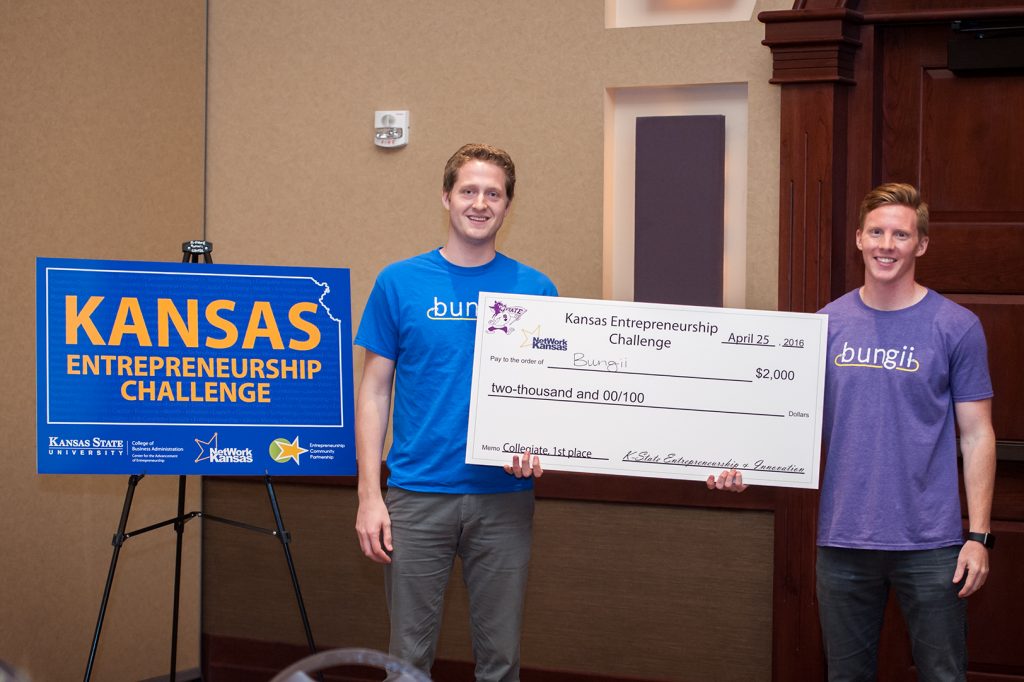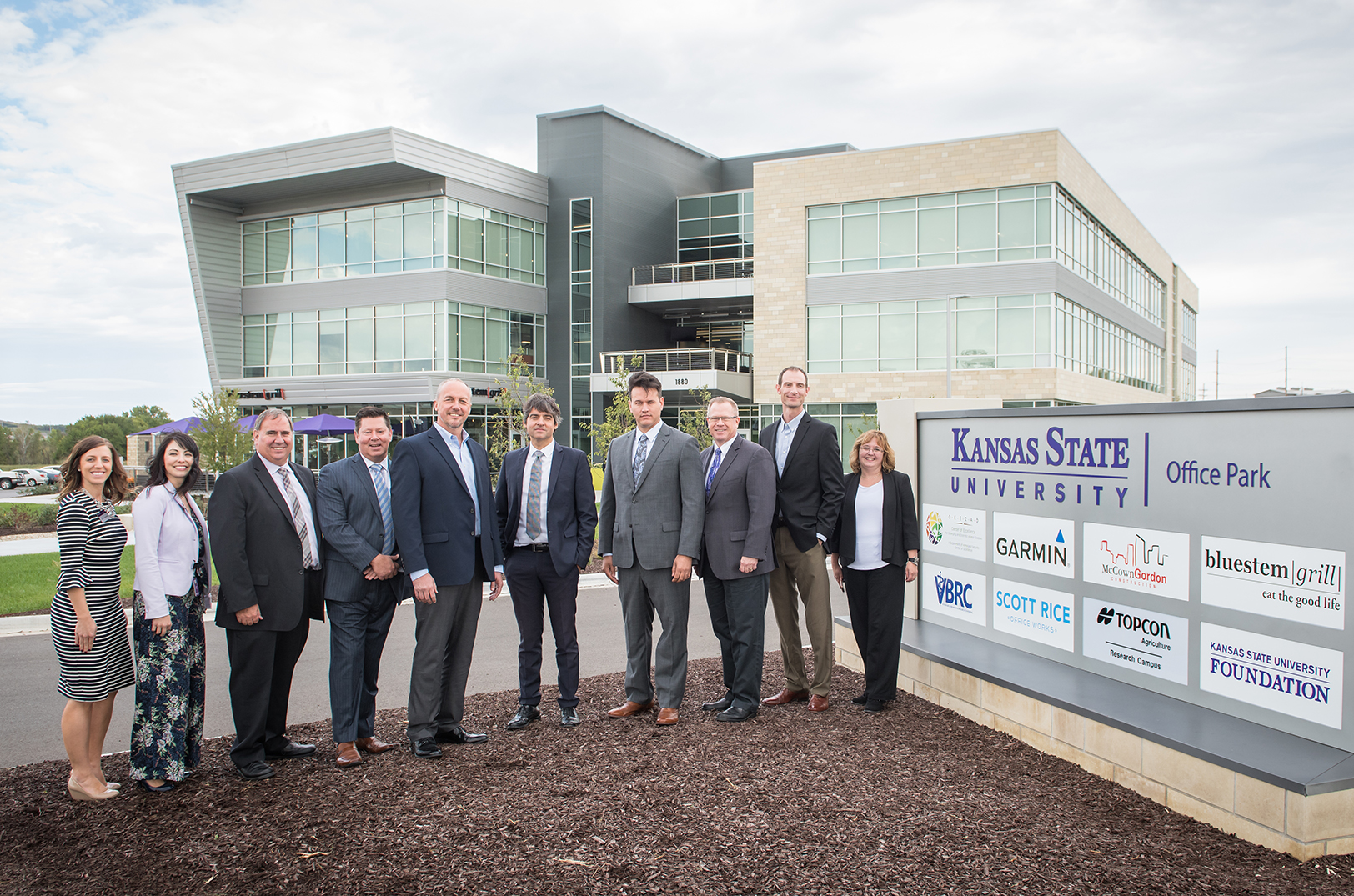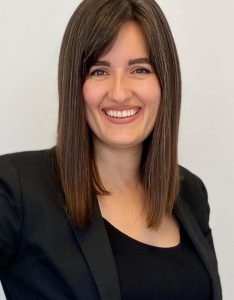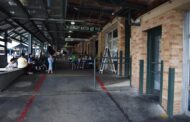MANHATTAN — An entrepreneur’s potential is anything but bite size in the Little Apple, Sarah Siders said.
“I’m really excited to be able to do this,” Siders, executive director of Spark MHK, said in announcement of the recent launch of the Manhattan-based entrepreneurial support organization — which aims to ignite activity within the regional entrepreneurial ecosystem through connections and resources.
“[Spark is] something that moves the needle on opportunity, prosperity, and equality — and those are things that I really care about,” she continued, detailing the reasons she took the role after leaving a career in social work and mental healthcare.
Click here to learn more about Spark MHK.
“I helped launch our local 1 Million Cups chapter and got involved with the business community in the fall of 2017,” Siders explained, noting the experience grew her network in entrepreneurship circles, launched a turn as a business writer and nearly resulted in a political career.
“The [Manhattan Chamber of Commerce] was looking for a candidate to run for city commission who would be an entrepreneurship advocate, who would represent economic development and things like that,” she recalled. “I was in these spaces, I have this interesting background with journalism and the business community, but also as a therapist. And they were like, ‘You know, you’re an interesting person because you’re a listener and you kind of have this natural ability to help people feel heard.’”
While Siders ultimately lost the election by 110 votes, she gained the attention of a captive community that saw value in increased advocacy for economic development and access to entrepreneurship — in particular, the founders of Manhattan-based coworking space, The Fellow.
“They had been major players in starting a lot of the programming here to support entrepreneurs,” she said of the coworking space and its founding team which includes Josh Hicks, Derek Richards, and Caleb Amundson.
Already serving the community in a critical, early-stage support capacity, the Manhattan Chamber of Commerce pitched the team on the idea of forming a non-profit organization that could bolster the work it was already doing by connecting with key players in the community, such as Kansas State University.
“There’s several layers to our ecosystem. And we have, for example, our Center for Advancement of Entrepreneurship at Kansas State University. That’s a key part of the entrepreneurship ecosystem because we’re serving students — but there’s also some collaboration going on with the community,” she said, adding additional elements that include the annual Startup MHK pitch competition, regular 1 Million Cups meetings, and an on-hiatus accelerator program called Launch a Business (LAB).

Ben Jackson and Harrison Proffitt, Bungii; 2016 Kansas Entrepreneurship Challenge
“K-State also has a pitch competition and several students have actually come and participated in Startup MHK — and three have won award money because they’ve been so ready, prepping through K-State’s program,” Siders said.
Overland Park-based Bungii got its start as a winner of the K-State Launch Competition in 2015. Click here to learn more about the startup — one of Startland News’ Kansas City Startups to Watch in 2019.
While Spark hopes to serve as a catalyst for innovation among the entrepreneurship-focused students enrolled at K-State, the organization is also focused on creating a stable economic environment through local entrepreneurship with much of the region made up of citizens who are just passing through.
“Our private sector is not the largest employer here. It’s state and federal employees around the area and that can be pretty destabilizing for a community, because we don’t have as much control over our local economy,” Siders said, noting the community is made up largely of students and soldiers stationed at nearby Fort Riley, nestled between Manhattan and Junction City.
“With student enrollment down on college campuses around the nation and then with fluctuating troop movements … we experience a significant loss to our local economy.”
Providing resources to students, soldiers, and permanent Manhattan residents alike provides the city with opportunities to retain talent and encourages widespread entrepreneurial growth in the region — which already serves as a critical access point in the Animal Health Corridor.
“We are wanting to support the culture makers. Our small businesses create a sense of place. We want to be able to support those businesses,” she said, noting the unique benefits of Spark’s operation as a nonprofit organization and where it can provide different types of support than the chamber, city, or university.
“We’re a very agile organization that can come in and provide resources, programming, education, and connections in the community for businesses of every size,” she said.
“We’re just young and we’re out here moving around and becoming a resource hub for people who are starting businesses.”








































